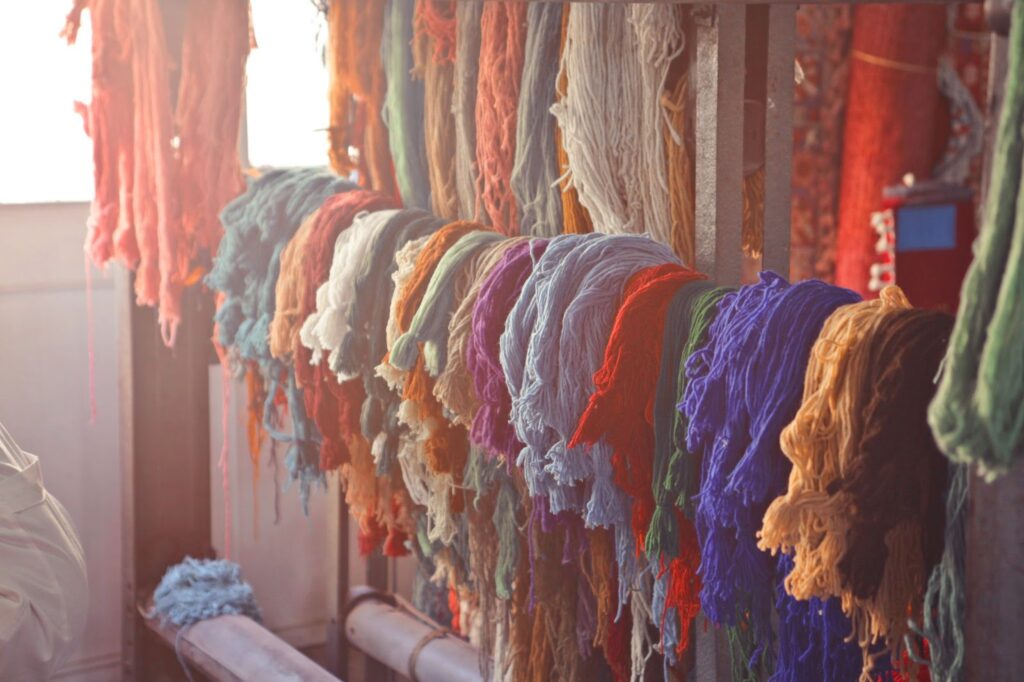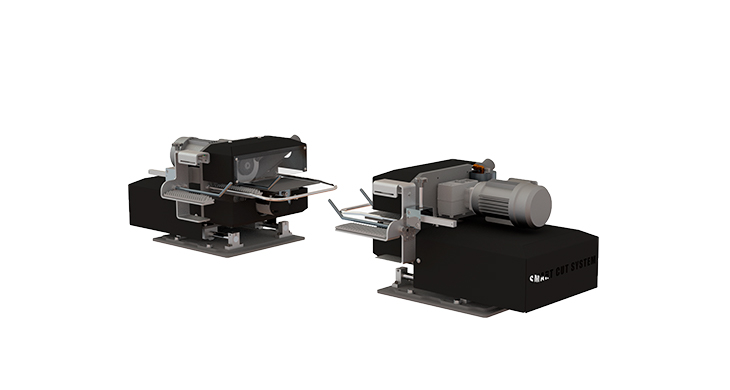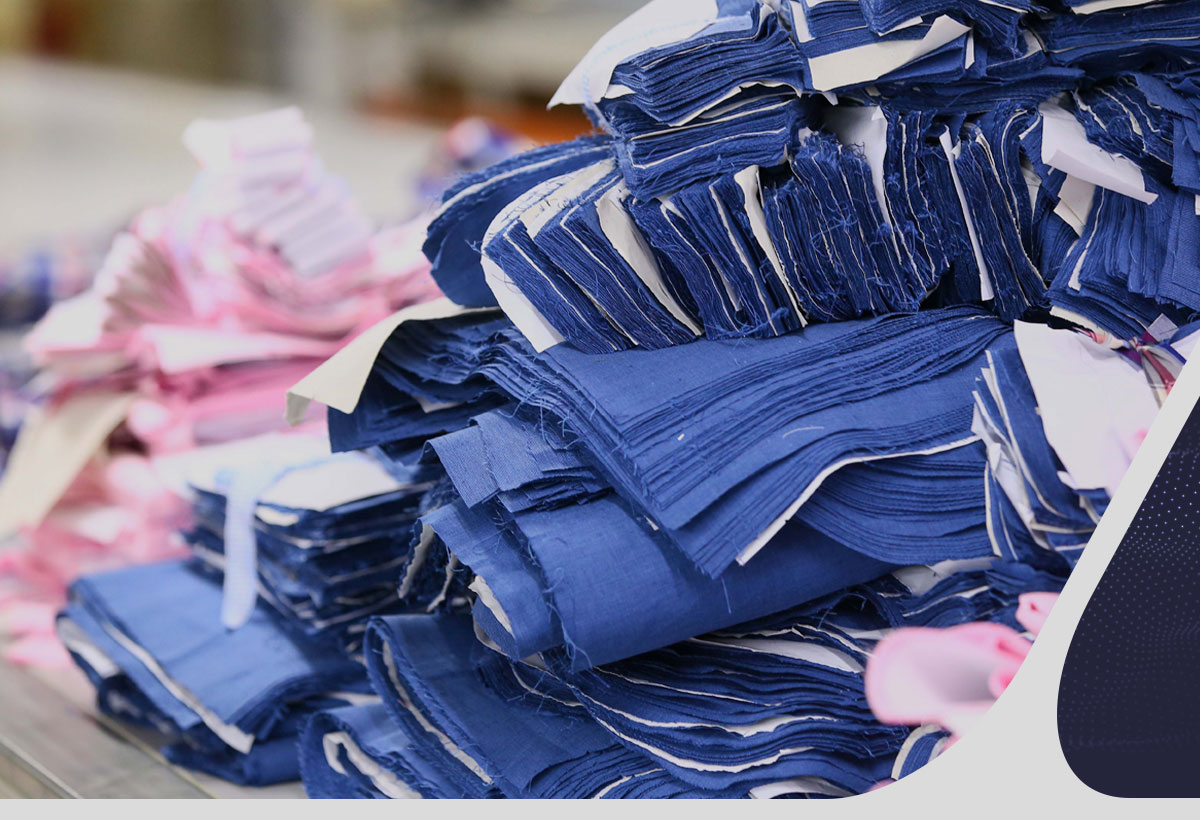Waste is the biggest problem of an inefficient textile chain. Promoting productivity, agility and optimization in each activity and phase is essential to avoid waste, lost time and additional costs. To achieve this, it is necessary to invest in technology and intelligent solutions.
Want to know more about the subject? So continue reading to see the importance of efficiency throughout the textile production chain and how to achieve this goal.
Have you already measured the impact of process efficiency in the textile chain?
We must emphasize at the beginning of this article that an error at the beginning of the textile chain is enough to cause other problems throughout the processes. Therefore, efficiency at all stages is essential to avoid losses and unplanned costs.
Of course, when we approach the topic of textile waste, we automatically think about material damage and waste, right? But there are those that are not tangible, such as the waste of time and money.
The lack of productivity and performance of your team can generate a series of failures, resulting in major problems for your industry. That is, if, for example, during finishing the operator processed the mesh with the incorrect parameters, later on, during manufacturing, there will be waste and, therefore, rework.
Therefore, by connecting the activities, it is possible to conclude that the efficiency of the textile chain is directly linked to the reduction of waste in terms of material, time and cost.
In any case, we cannot fail to mention the impacts caused by textile waste on the environment. According to data reported by the G1 portal in the Fios da Moda survey, in Brazil, 9 billion pieces of clothing are produced. While 80% of textile waste is discarded incorrectly.
On our blog we are always reinforcing the importance of ensuring waste reduction to promote efficiency and, consequently, profitability. If the sustainable appeal is not enough, then let’s think together about the impacts this causes on your textile chain.
After all, the country has the largest complete Textile Chain in the West according to the Brazilian Association of the Textile and Apparel Industry (ABIT)). Since there is the production of fibers, with cotton plantations, fashion shows, spinning mills, weaving mills, processing plants, clothing manufacturers and strong retail. Therefore, the impact could be greater economically.
How to reduce textile waste in your chain?

It is important to emphasize here that textile waste are responsible for generating 15 million scraps of fabric and clothing that reach Accra, the capital of Ghana. All of this in a single week, according to an article on the G1 portal.
Which, consequently, results in jammed landfills and major consequences for the environment. Because knitwear made from cotton, for example, takes 20 years to decompose. Those made of synthetic materials can remain for up to four centuries.
And this is due to a lack of efficiency in activities, resulting in errors in parts, waste and, therefore, rework costs. It is possible to reduce this waste by using intelligent solutions for each stage of the process.
Therefore, below we have listed some good practices at each stage of the textile process to eliminate losses and ensure greater efficiency. Check it out!
Weaving (Spinning)
Weaving (Spinning) is the process corresponding to the interweaving of threads to construct the fabric or mesh. It is worth noting that in weaving the yarn is already ready.
This is a stage that involves quality control that aims to predict and anticipate problems in the production process on an ongoing basis.
Therefore, it is essential to obtain a production line with updated and intelligent tools and machines to contribute to quality control and, consequently, to the optimization of the stages.
Only in this way will it be possible to guarantee a reduction in failure and stoppage rates, at the margin of loss of raw material and ensure greater time savings.
Finishing

The finishing phase is the time to ensure the dimensional structure of the fabric, along with its appearance. Processes such as Branching, Calendering and Compacting, Sanforizing and Spray Finishing take place here.
The objective is to guarantee the quality of the piece in every way. That is, a high level of durability, resistance, physical touch and standardization, for example.
For this stage, Delta Máquinas Têxteis developed the edge trimmer KTS100 – iConcept Smart. This solution is ideal for reducing waste in your textile chain.
With this machine it is possible to use most of the material and still preserve the environment. After all, it can be used to optimize the cutting of knit and fabric edges with the help of optical sensors and automated adjustment.
In addition to the trimmer, Delta offers the most complete portfolio for this stage, aiming to guarantee production efficiency and part excellence. They are:
- Stenter for textile finishing RDS1000;
- MWS055 iConcept Flow mesh opener
- Dogal Centering System CDW011/CDW022 iConcept Centring
- Fabric untwister MWO 100/MWO 066 iConcept Flow
- EHR200 iConcept Eco hydro sprinkler station
- Hydro sprinkler HAT106 / HAT010 / HAT110 iConcept Eco
- SGK050 gum applicator
- MWF033 iConcept Flow Impregnation Foulard and others.
Press Shop
Printing is the stage that concerns the activity that adds patterns to fabrics. For this, there are techniques for different types of textile products.
However, the problem here lies in errors regarding the application of paints or printing, for example. After all, they could end up compromising the entire piece. In other words, a printing failure is enough to make that product unviable.
Therefore, we must invest in modern technological and technical solutions to reduce defect rates and, consequently, textile waste.
Delta also developed machines and equipment to make this process even more efficient. The digital print preparer PID100 iConcept is perfect for continuous and low-cost processes, as it performs roll-to-roll treatment quickly.
This machine also helps with the application of the primer and can be used to prepare various compounds, ensuring vivid colors, high-resolution images and fastness to washing.
It is worth highlighting the automated drying control of this solution, which provides a higher quality standard and reduces failures and textile waste.
E ainda, há também:
- CTM450 iConcept Print sublimation calender;
- RNS170 iConcept View Non-Stop Reviewer;
- SDR100 digital printing dryer – iConcept Print;
- Open and tubular mesh preparer PMA500/PMT200 iConcept View.
Cutting
The main errors in the entire process tend to occur during the cutting phase. Therefore, it is essential to invest in machines that follow the industry 4.0 concept to eliminate problems, promote productivity and reduce waste.
Furthermore, it is essential to ensure quality inspection through defect mapping. And it is at this moment that the knit and fabric relaxer RLX600 – iConcept Relax stands out.
This machine is responsible for automatically calculating weight and yield, providing real information on roll width and footage. Such attributes are essential to eliminate dimensional defects in the cut pieces.
It also eliminates the conventional 24 and 48 hour rest period and completes the process in just a few minutes.
In addition, we can also cite as an example the sample washer DWM555 – iConcept Smart. It carries out tests on small pieces of fabric in a maximum of 20 minutes.
Furthermore, the REV170 iConcept View knit and fabric reviewer collects data, avoids human errors, generates automated mapping and promotes speed.
There are also other smart solutions for this step, such as:
- REV110 iConcept View flat fabric Reviewer;
- ELC500 iConcept Smart roller elevator;
- FRC200 iConcept View roll fractionator;
- Collar Counter FRC100 iConcept View;
- CTM450 iConcept Print sublimation calender.
To ensure efficiency in your textile chain, discover the entire Delta portfolio, simply download our catalogue.



